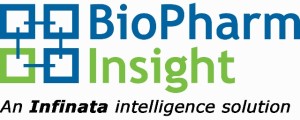Regenesis Biomedical, a Scottsdale, Arizona-based medical device company, now sees a sale to a strategic in 2015 or 2016 as its likely exit, said CEO Scott Brooks.
The PE-backed company told this news service last year that a sale or final funding round was likely this year. Brooks said it now expects its next M&A event to be a sale, and that the process has been pushed back to 2015 or 2016 after receiving “good news” from the FDA on its flagship pain management product that will open up the lucrative orthopedic sector, but which requires additional testing that is expected to take one to two years.
Potential buyers, according to Brooks, would include any company in pain management, such as London-based Smith & Nephew, Michigan-based Stryker, Texas-based Kinetic Concepts, Ireland-based Covidien, Minnesota-based Medtronic, Massachusetts-based Boston Scientific, Texas-based Kimberly Clark, and New Jersey-based CR Bard.
Regenesis has proprietary technology to treat post-surgery pain and inflammation using electromagnetic energy applied directly to the tissue in a noninvasive therapy featuring a durable medical equipment unit that is rented to the patient for in-home use. The company already sells the device to general surgeons and podiatrists, with half of business coming from the additional sales of single-use application covers, Brooks noted.
It had 2012 revenue of USD 17.3m, and though revenue was down in 2013 due to the closing of several unprofitable sales territories, the company “more than made up for it” in increased profitability, Brooks said. Regenesis has 70 employees.
In December, the FDA approved its application to remove metal contraindication, which will allow the company to sell to all orthopedic surgeons. Prior, there was at least a 50% chance in any orthopedic patient that there would be some metal in the area of treatment, Brooks explained, noting Regenesis has already seen a big uptick in sales this year.
Additionally, the FDA proposed a special order in February reclassifying the technology and renaming it from a Class III PMA to a Class II 510k with special controls. This reclassification will lessen reporting and testing requirements, as well as expenses, and potentially expedite FDA approval, Brooks explained.
Throughout the next one to two years, Regenesis will be conducting a randomized controlled trial that is expected to cost USD 2m. Last year’s cost measures are enabling it to self-fund the studies, without additional funding from investors, Brooks said. The completion of trials will also act as a springboard for the company to seek a CE mark for sales in Europe.
In an October report by this news service, Regenesis CFO Dennis Genge said the company was valued at USD 30m after its most recent capital raise in 2011, but that both the capital markets and its own business have improved dramatically since then.
For this report, Brooks declined to comment on valuation, though noting the attractiveness of the company’s expanded market and new classification. He also mentioned the product’s in-home use, and pointed to the Affordable Care Act focus on providing increased care in the home.
If the company’s decides to “really knock it out of the park” by doing multiple trials, it would require additional outside funding, according to Brooks, who said there are no plans to do so at this point.
Regenesis investors include Fulcrum Equity Partners, Solstice Capital and TGap. It uses law firm Snell Wilmer, and recently switched its accounting firm from Ernst & Young to more regionally focused Eide Bailly.
by Deborah Balshem

